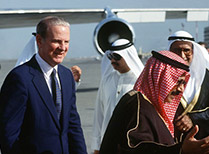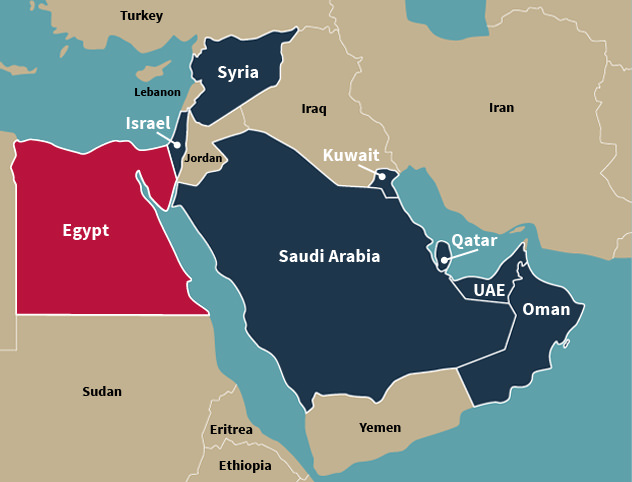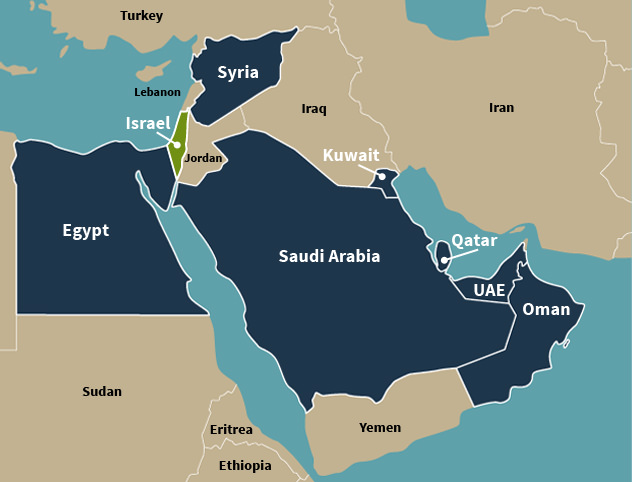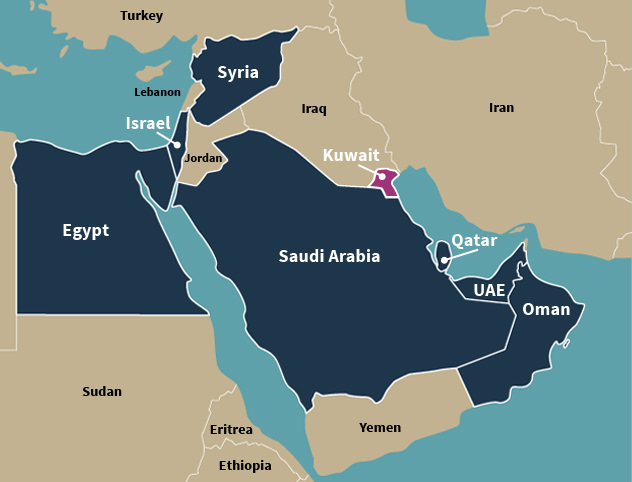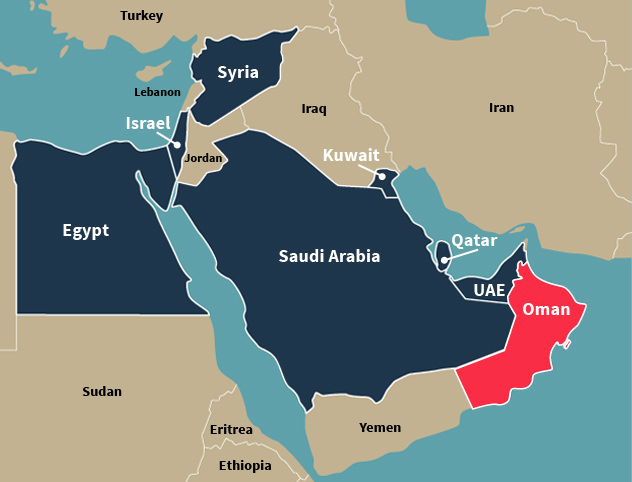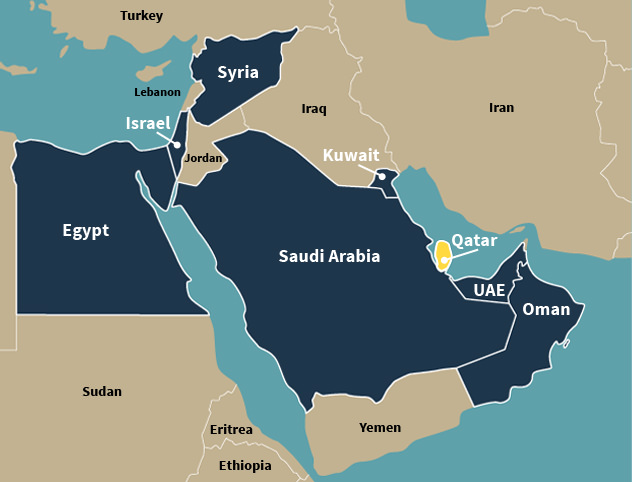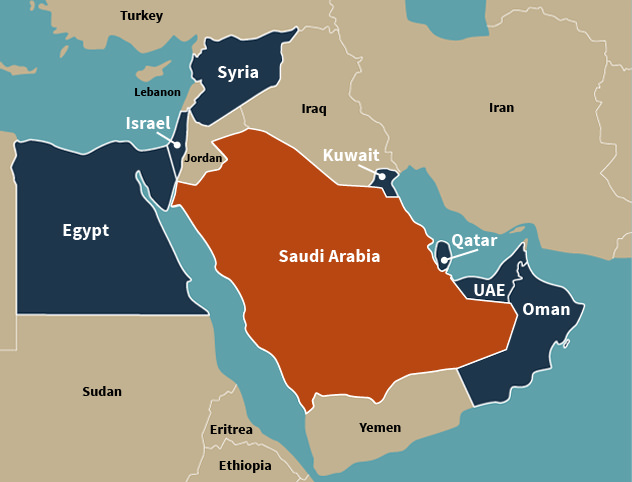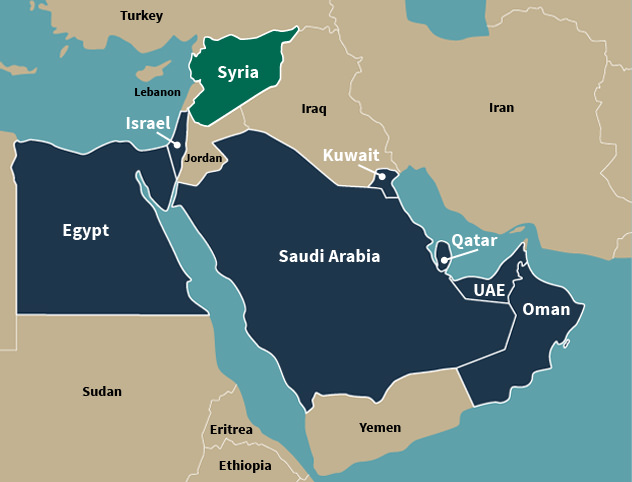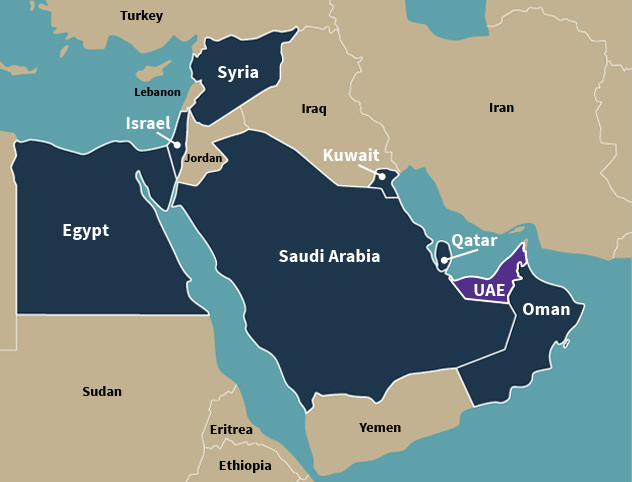The Coalition Builder (1990)
— James Baker
Watch this video clip from the documentary. As you watch the clip, ask yourself:
- In negotiating with Iraqi Foreign Minister Tariq Aziz, what did Baker ask of Aziz?
- How would you characterize Baker’s demeanor in the press conference following the failed negotiations with Aziz?
By the summer of 1990, the Cold War, which had dominated U.S. foreign policy for six decades, was coming to a close. The Soviet satellite nations in Eastern Europe had pulled away from the U.S.S.R. The Soviet Union’s empire was diminished. The United States was left as the “lone” superpower.
Later that summer, trouble broke out in the Middle East. Iraqi dictator Saddam Hussein invaded the neighboring country of Kuwait, a blatant act of aggression. Bush and Baker knew that the U.S. response to Hussein’s invasion would set an important precedent. This was the first conflict after the end of the Cold War. They wanted to show the world that the U.S. could respond appropriately.
Iraq had been a client state of the Soviet Union for much of the Cold War. But when Baker heard news of the invasion, his thoughts turned to Moscow. If the Soviets could be convinced to condemn Hussein’s invasion, it would add legitimacy to the United States’ position against Hussein. Immediately following the invasion, Baker flew to Moscow for an emergency meeting with Soviet foreign minister Edourd Shevardnadze.
“It was a fairly contentious meeting,” Baker recalled. “We kicked it around for 90 minutes. Finally, though, he agreed.”
Later that day, Baker and Shevardnadze stood together before the news cameras, united in their condemnation of Hussein’s actions.
Baker believed that the United States should not jump into a military conflict in the Middle East without first winning the consent of Iraq’s Arab neighbors. He set out to build an international coalition. This meant appealing for help from the United Nations, an institution that many people thought was obsolete at the time. In August 1990, members of the U.N. Security Council demanded that Iraq withdraw immediately from Kuwait. Later that month, the council passed a resolution ordering economic sanctions against Iraq.
Before Baker could finish building a coalition, Hussein upped the ante. Hussein sent oil tankers into the Persian Gulf, a clear violation of U.N. sanctions. Most of Bush’s advisors wanted the United States to take immediate military action against the ships, but Baker advised against it. He knew that if the U.S. acted alone, they would lose the support of the Soviets and other coalition members. Baker called Shevardnadze, who asked for three days to convince Hussein to turn the ships around. Then, Baker had to plea to Bush for more time.
“I frankly thought I wouldn’t win that argument, notwithstanding my close relationship with [Bush], because everybody else was on the other side,” Baker recalled. “But he knew.”
The president trusted his old friend’s advice, and that trust was rewarded: Shevardnadze did get Hussein to turn the ships around. The Soviets were not alienated from the coalition against Hussein.
By January 1991, war seemed inevitable. And yet, Baker made one last plea for peace. One week before the U.S. deadline for war, he met in Geneva with Iraqi foreign minister Tariq Aziz. But the talks were fruitless. The U.S.-led coalition began dropping bombs against Hussein on January 17, 1991.
The war was quick. Within 60 days, the U.S.-led forces defeated the Iraqi army and sent Hussein and the Iraqi forces fleeing back to Iraq. With the objective accomplished, Bush ordered a halt to hostilities. The decision was controversial. Many thought that the coalition should attempt to overthrow Hussein. But ultimately, Baker and Bush decided that the United Nations and Congress had not authorized action beyond driving Hussein from Kuwait. The war was over.
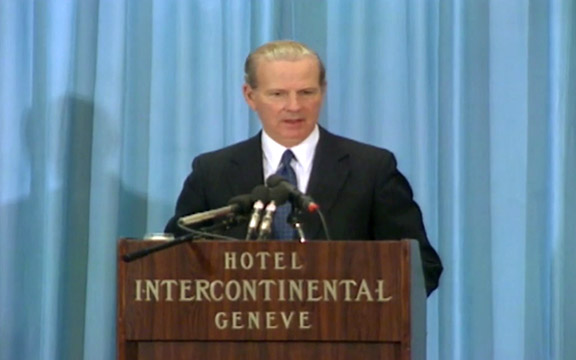
One week before the U.S. deadline for war, Baker met in Geneva with Iraqi foreign minister Tariq Aziz. At a press conference, Baker announced, “regrettably ladies and gentleman… I heard nothing that suggested to me any Iraqi flexibility…”
Explore the interactive map of the Middle East to see the physical proximity of the players in the coalition building efforts. Click on the interactive map below to get more information.



